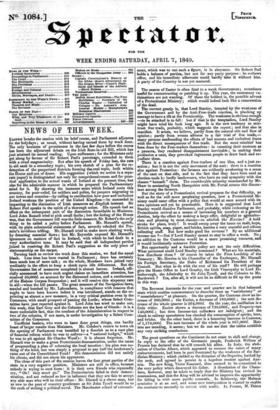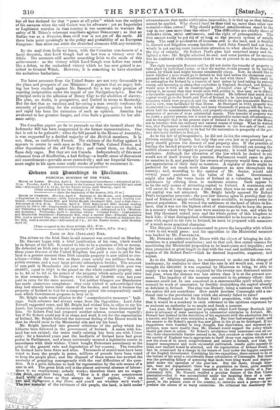The great questions on the Continent do not cease to
shift and change. In reply to the offer of the Germanic people, Frederick William of Prussia has declared that he will consult his allies. In Italy, the abdi- cation of Charles Albert, which appeared to remove the cause of many embarrassments, had been in part frustrated by the weakness of the Sar- dinian Ministry ; which yielded to the dictation of the Deputies, backed by the mob, and agreed to persist in a hopeless contest against Aus- tria. The new King, Victor Emanuel, thus seemed to be committed to the very policy which destroyed his father. A dissolution of the Cham- bers, however, may be taken to imply that the Ministry has revised its concessions, and that the King will be advised to improve the opportunity for falling in with more pacific counsels. In Schleswig, the Malmoe armistice is at an end, and some new interposition is wanted to enable the combatants mutually to retreat with credit. In France, M. Thiers
has all but declared for that " peace at all price" which was the subject of his sarcasm when the cold Guizot was its advocate : yet an Imperialist or Legitimist reaction in that country is too uncertain to warrant the safety of M. Thiers's vehement manifesto against Democracy ; so that 111 Italian war as a diversion from civil war is not yet off the cards. All these facts point speakiogly to the policy and probability of an European- Congress : that alone can settle the disturbed elements with anycertainty.



























 Previous page
Previous page